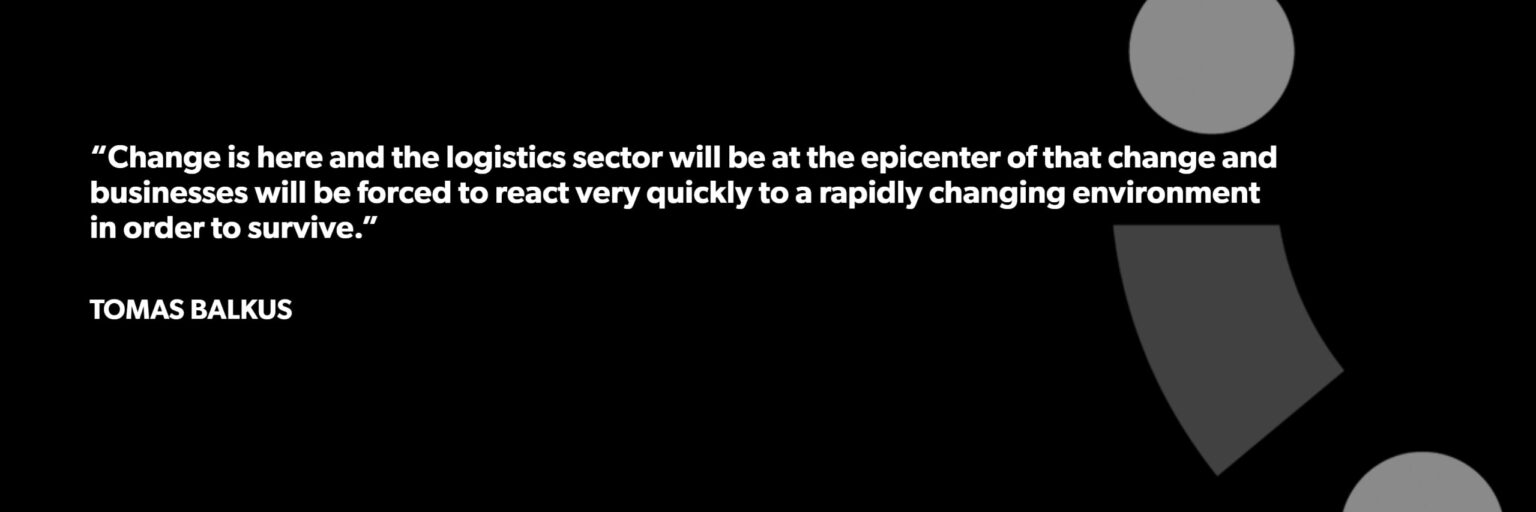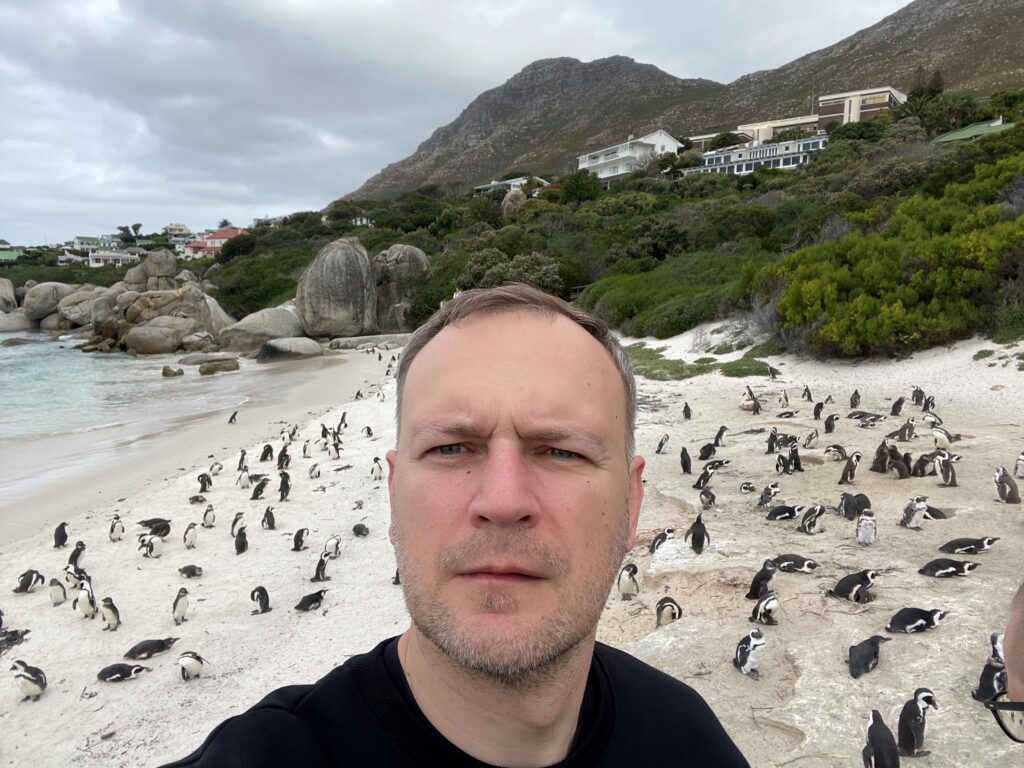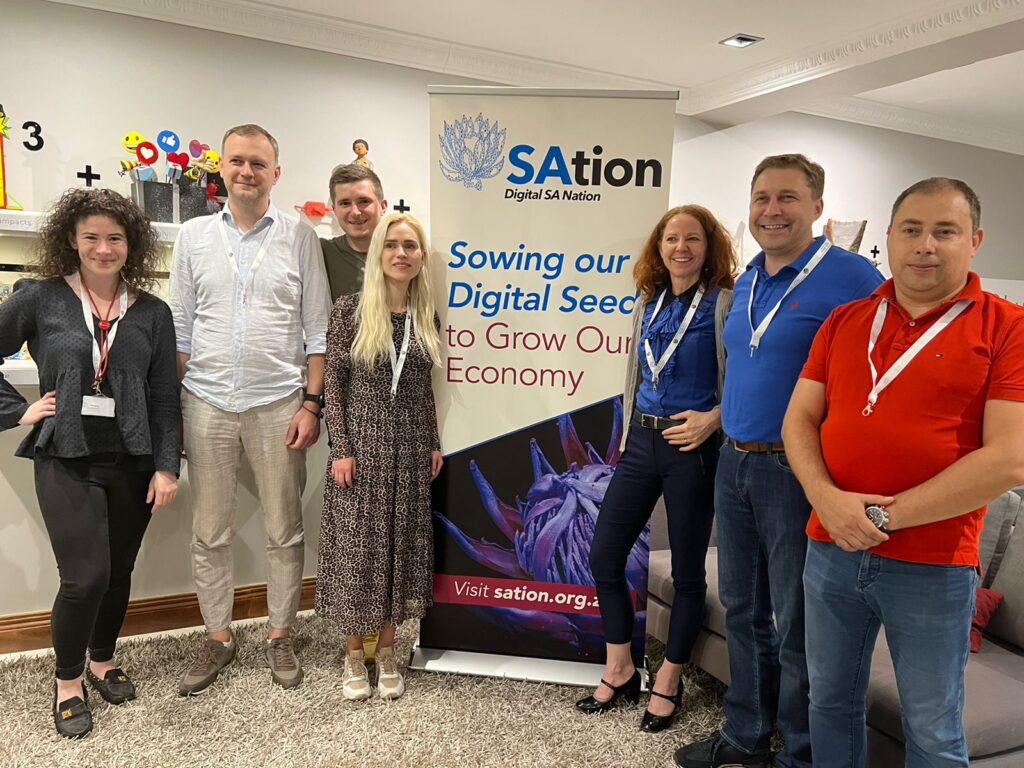Tomas Balkus on the business consultancy project in South Africa
Author - Egidija Galginaitė | 15.01.2023

The Chief Business Development Officer at LEKPAS Group, Shareholder at UADBB Ban Vita, and Financial literacy lecturer Tomas Balkus shares valuable insights on the digital business transformation and the experience he had in the South African Republic, where together with the ISM Executive MBA (EMBA) student members, he assisted the public company SAtion – a company responsible for the full-scope digitalization of South Africa – in building the foundations for their future success. Mr. Balkus consults, invests, and speaks all over the world; in short, he knows what it takes to transform inefficient practices and develop successful businesses. Read the interview now.
— What was your first impression when you arrived in South Africa?
Tomas: Just after landing, we took a guided tour of Table Mountain, which offers spectacular views of Cape Town’s nature and wildlife. What also impressed us was the delicious food, helpful locals and the standard of local restaurants. In the first few days I realised how contrasting this country is. A small section of society is prosperous, but most of the society is drowning in poverty. Society is very divided and alienated.


— What was your favourite experience or moment from the trip?
Tomas: The most memorable day of the trip was the excursion day, when we visited the Cape of Good Hope. After all, it’s not every day you have to stand on the edge of the world. Muizenberg Beach, where the Atlantic and Indian Oceans converge, was very impressive. A very impressive place!

— What was your purpose or goal in participating in this trip?
Tomas: The main purpose of my trip was to get to know the culture, the people and, in a short time, to carry out a consultancy project at SAtion, a public institution that was set up during the Covid-19 pandemic with the aim of digitalizing South Africa in order to help the economy recover from the shock of the pandemic. To propose the necessary changes to this company to achieve its noble mission and the vision set out by society.

— What an honour! What were the biggest challenges you faced there?
Tomas: The biggest challenge was the consultancy work with SAtion, where in one week we had to fully understand the specifics of the company, agree on the necessary changes to be implemented and make recommendations to implement these changes.


— Sounds very complex. How useful was the trip to South Africa? What insights have you taken back home with you?
Tomas: The trip was very useful because, on the one hand, it helped me to get to know very well the specificities of this country, how the public sector functions, what problems are being solved, and where is the state itself heading. It was also interesting to understand the realities of business, what projects are being implemented and what problems are being solved. I was also professionally curious about the logistics business in South Africa, what the sector looks like, what problems it faces and what opportunities there are for developing a logistics business in this country. The business environment in this country is very similar to that of Europe due to the many links with the Old Continent, but they still have a long way to go to reach the European level. We Europeans could take from South Africa a desire to change as fast as possible and a very strong hunger as a driving economic force, which is lacking in the old Europe.

— It’s great to know that South Africa is steadily advancing. What was your ultimate takeaway from the trip?
Tomas: What am I taking away from this trip? This trip has made me realize how challenging the job of a business consultant is. How difficult it is to understand a company’s performance, evaluate it and see what changes the company needs in a short period of time. I realized the importance of teamwork in dealing with serious challenges, complementing each other and sharing leadership with each other. I also managed to improve my active listening skills, feel the dynamics of teamwork and the good feeling of being part of an almost perfectly functioning team of consultants.
— Did this trip impact your perception of business transformation in South Africa and Europe?
Tomas: The trip showed once again that business in both South Africa and Europe is being transformed by digitization. Not all businesses yet understand the benefits of automation and digitalization, but more and more businesses are coming to this realization. Businesses that do not follow this path will reduce their chances of reaping additional benefits from the emerging 4th wave of the industrial revolution and, in the worst case scenario, will even be doomed to failure.

— For the past year, you’ve been leading the LEKPAS Group towards a full-scope digitalization. Do you see this trip having a positive impact on your digitalization goals at LEKPAS?
Tomas: My goals for the digitalization of LEKPAS UAB have not only not diminished after my trip to South Africa but have been further reinforced by my belief that digital transformation is essential to strengthen the competitive advantage of our business in a crowded market. Digital transformation will also enable us to respond more quickly and efficiently to the rapidly changing needs of our customers, to offer personalized solutions tailored to their needs and most importantly to enhance the quality of service, which is a core value of our Group.
— Are there hard-to-spot pitfalls that are critical to avoid when digitalizing a business?
Tomas: First and foremost, we need to avoid the perception that once we have taken some of the first steps in the digital transformation of a business, the job is done and there is no need to go any further. Secondly, I recommend that every business should not overestimate its potential by thinking too highly of itself and lacking a healthy dose of self-criticism. Thirdly, it is very important not to overdo it and start several digitization projects at the same time and be disappointed at the end of the digitization without having done anything.
— Could you give three major recommendations for businesses to focus on when it comes to digitalization and business transformation?
Tomas: As regards digitization and business transformation, the focus should be on the following three key recommendations:
1. Business must become fundamentally digital, as only superficial (façade) digitization will hinder the progress of companies and prevent them from fully exploiting the opportunities offered by the digital revolution.
2. Businesses will have to keep exploring the environment, finding new opportunities and experimenting constantly to stay competitive.
3. Lastly, but I think most importantly, the world has already changed irreversibly and the old ways of doing things no longer work, so we need to unlearn the habits of the past and start to develop new habits that are relevant to today’s realities.
— Looking out 3 to 5 years, what do you think will be the next big change in the transportation logistics industry?
Tomas: Soon, the logistics industry will have to cope with the challenge of higher service costs. Businesses will start to switch to alternative fuel sources, and certainly not just electric trucks, but also other alternative fuels. There are also many challenges in implementing the EFTI requirements for digitizing the movement of documents used in logistics. There is also much debate about the future of self-driving vehicles, the application of new inventions to logistics, the opportunities offered by the Internet of Things and other important innovations. Shaping the customer experience will change the perception of social media marketing, the application of big data, the channels for reaching customers and ultimately the very culture of communication with customers, partners and all stakeholders. Change is here and the logistics sector will be at the epicenter of that change and businesses will be forced to react very quickly to a rapidly changing environment in order to survive.
PHOTO GALLERY
LEKPAS Group is the corporate family of transport companies dispersed across Europe – Germany, Lithuania, and Poland, with more branches to come in the upcoming years. LEKPAS Group manages its own truck fleet and the fleet of its subcontractors, transporting thousands of full and part loads of cargo every year. The company has grown from a single truck in 1994 to an extensive Euro 5/6 truck fleet, without exception equipped with the latest technologies that enable 24/7 live GPS tracking, precise temperature control, and non-disruptive fleet management. Currently, the company transports FTL & LTL cargo across Europe, Scandinavia, and the Balkans, additionally offering international intermodal freight forwarding and value-add logistics services. With a team of more than 300 skilled employees, LEKPAS Group is a leading transport company chosen by world-famous brands; while its focus on transparency, long-standing reputation and trust-based collaboration attracts the best of professional drivers.
OUR ROAD FREIGHT SERVICES
Refrigerated transport
Our temperature-controlled reefers perfectly preserve fresh, chilled, frozen, and ambient goods
Tautliner transport
Robust and functional, our belted curtainsiders optimally combine performance and efficiency
Freight forwarding
Our experienced and knowledgeable expeditors will forward your goods anywhere you require
Value-add logistics
Being highly flexible and customer-oriented, we offer warehousing, intermodal shipping, and more